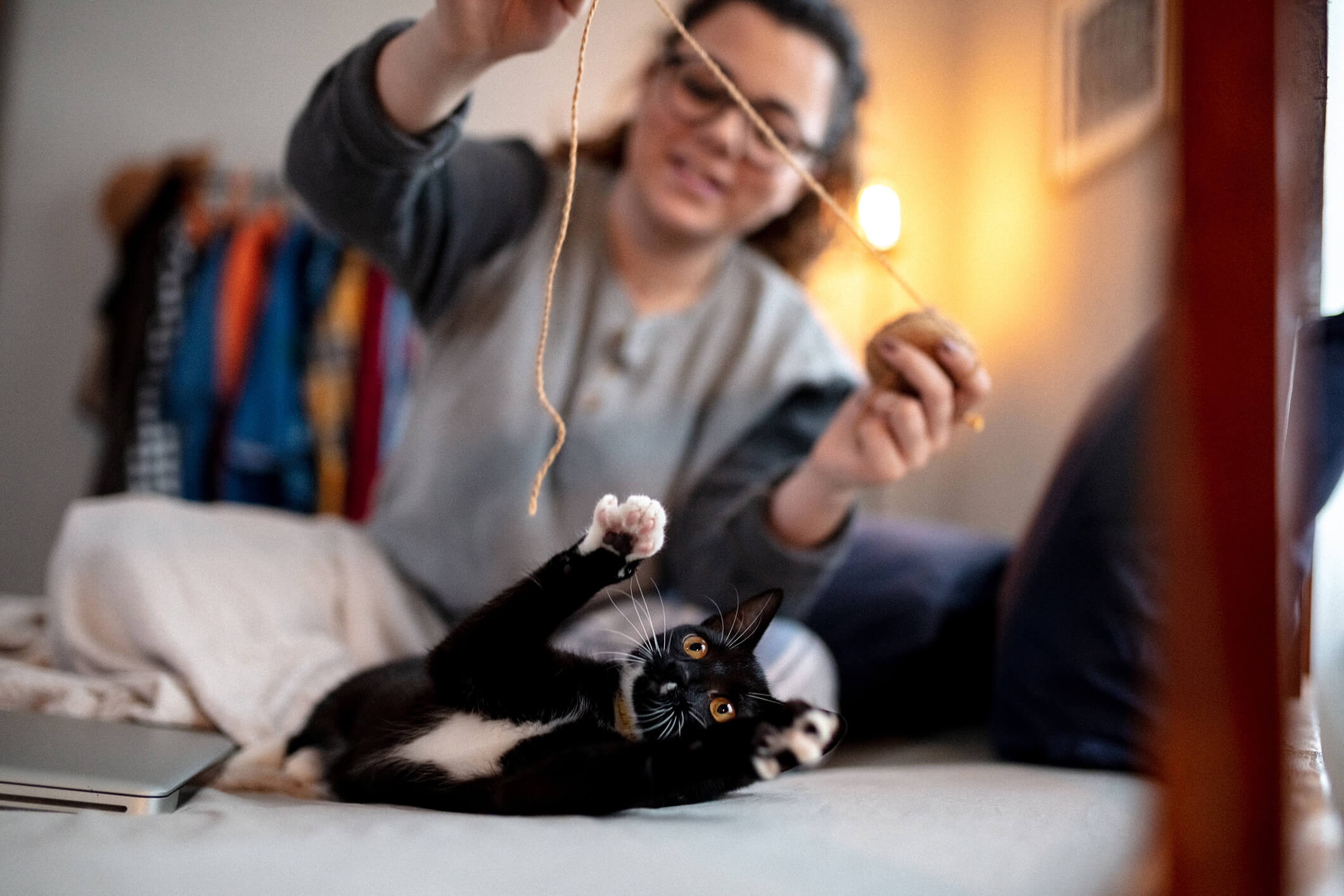
6 Reasons Your Cat Howls All Night Long
Your cat might be sleepy and quiet throughout the day, but at night, they might come alive, running and playing throughout the house. But what’s even more disruptive is the persistent yowling and crying some cats do throughout the wee hours of the morning while you’re trying to sleep.
If your cat has a habit of keeping you up all night with their loud and incessant howling, you probably want it to stop. In order to help curb the disruption, you’ll want to discover your cat’s reasons behind the yowling. Here are a few potential causes for these nighttime outbursts.
- Boredom: Cats are crepuscular animals, meaning they are most active around dusk and dawn. Unfortunately, this is when your family is likely to be winding down or sleeping. Without adequate stimulation, your cat might become bored and howl for attention during these periods.
- Hunger or thirst: Cats have a habit of letting us know if one of their needs is unmet. If they get hungry or thirsty during the night but no food or water is available, they might express their displeasure by yowling. This is particularly common in cats that are given food after they whine, because they have learned that they are rewarded for this behavior.
- Dementia: As cats age, they might develop what’s called cognitive dysfunction syndrome, or feline dementia. This problem can cause confusion and disorientation in cats, as well as insomnia. As a result, many older cats wander through their homes at night confused and feeling lost and might yowl out of fear and stress.
- Heat cycles: If you have an intact (unspayed or unneutered) cat in your home, they might yowl at night in search of a mate. Female cats howl to attract males, and males might howl if they hear or smell a female cat outside. This howling might not only occur at night, though; it’s more likely to occur both at night and during the day.
- Disease: Cats that yowl and cry all night long might be experiencing discomfort or pain due to an underlying health problem. Excessive vocalization is particularly common in cats with kidney or thyroid disease, but it’s a potential symptom of many other illnesses as well. If you think your cat is feeling under the weather or have noticed other symptoms of illness, such as changing behavior, lethargy and changes in eating, take them to the vet for an exam.
- Attention to something: Due to their heightened senses, cats have a knack for picking up on things humans might not. Cats have been known to sense fires or other danger near the homes, as well as prey like mice within the walls. If your cat seems to be on high alert while they’re howling throughout the night, they might be trying to draw your attention to something—and it might be in your best interest to listen!
How to get your cat to stop yowling at night
Because there are many different reasons why a cat might begin to yowl at night, you’ll want to try and identify the underlying cause before addressing it. Step number one should be a vet visit to make sure your pet is healthy and that no hidden health problems are causing their restless discomfort. Intact pets should usually be spayed or neutered to reduce the risk of health problems and cut back on stray litters.

If the vet gives your pet the all-clear, you’re likely dealing with a behavioral issue. In this case, a few things might help.
- Meet your cat’s needs before bed: Cats that yowl throughout the night probably need something, whether that’s food, water or stimulation. Make every effort to ensure all your cat’s needs are met before bedtime, including scooping the litter box, refilling water bowls and leaving out toys.
- Feed on a schedule: If you tend to give your cat food after they come to you and cry, they might have learned that whining gets them what they want. To stop hunger-related yowling, start feeding your cat on a strict schedule. Only feed them when they are quiet—never when they are howling—to discourage bad behavior.
- Tire your cat out: Under-stimulated cats that howl at night will benefit from more activity throughout the day. This serves two purposes. One, it gives them the exercise and stimulation they crave. Two, it tires them out, so they sleep at night and maintain a routine that’s similar to yours.
- Use nightlights: Installing a few nightlights throughout your home can help put senior cats with cognitive decline at ease. This helps them see better with their aging eyes and can help them navigate with less stress.
- Provide calming supplements: If all else fails, it can’t hurt to try reducing your pet’s nighttime stress and anxiety by providing a natural supplement like pet melatonin or a specially formulated supplement for cognitive decline.
Yowling cats can be frustrating, especially at night, but you must remember that yowling is how cats communicate with us. Before you scold your pet or ignore them, try to find the source of the howling and fix it to keep your cat calm.


